Enough is Enough: Why Veganism Isn’t The Holy Grail of Eco-conscious Living… But Eat Less Meat
Let’s stop fighting about whether or not being vegan can save the planet. It’s a whole lot more complicated than that.
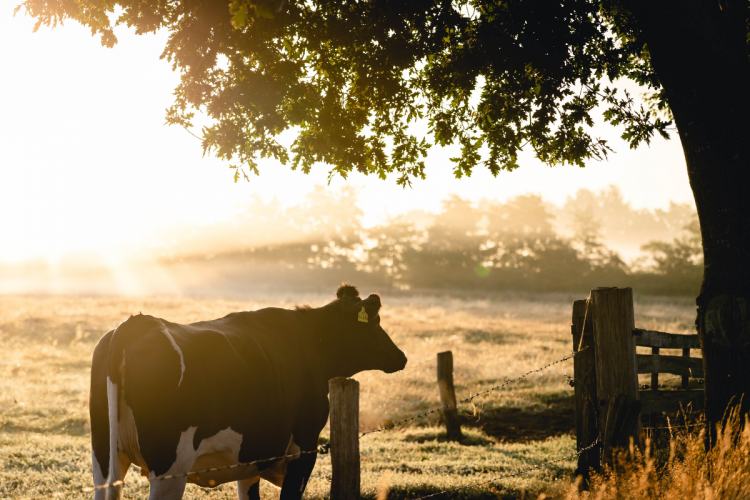
Do you know what really gets me going? Veganism and plant-based diets as the holy grail of healthy and eco-conscious eating. I know, I know. It’s a hot and contentious topic in the eco-conscious community.
I take no issue with veganism as a general lifestyle. If you prefer not to eat or use animal products, by all means, do your thing. But I really get amped up when I hear broad statements that veganism and plant-based diets are the keys to environmental saviourism. Without consideration of nuance, these dietary fads simply replace one problem with another. Let’s dive in.
It’s Not ‘All or Nothing’
The environmental battle over meat drives me a little crazy. Some people believe it’s their right to eat whatever they want, even if that means a steak a day for breakfast, lunch, and dinner. Others think that the whole world should be vegan, regardless of the effort or cost incurred to achieve that feat. Still, others believe one’s right to eat meat depends on their culture, their geographic location, their wealth, or a host of other factors.
Twitter threads and Instagram comment sections get nasty between absurd “all or nothing” claims. Facebook feeds fill with fake news about fake meat. Documentaries present some version of the “mostly” truth, but not the whole truth, to help them sway the masses in their favor (at times for financial profit – shocking in our capitalist culture, I know).
The reality? It’s complicated. It depends. And sorta maybe.
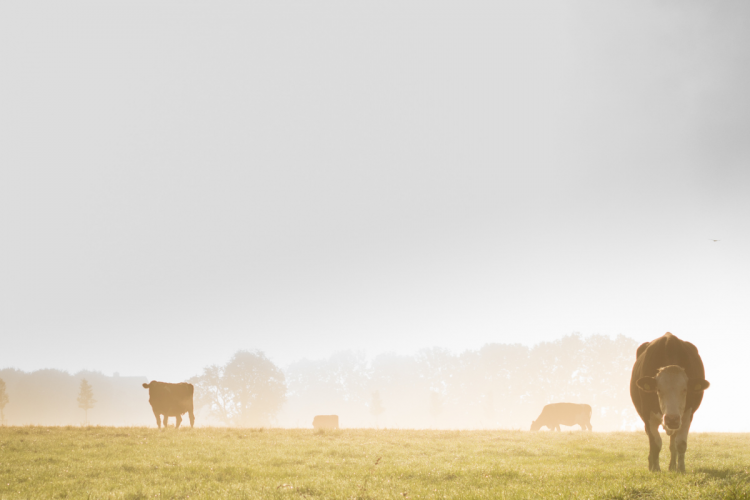
Can We Stop Fighting and Start Learning?
Before everyone gets all hot and bothered about the fate of cows on our planet, I wish we could recognize that, like every environmental science and justice topic, the environmental impacts of meat in our diets are incredibly complicated. Not a single person – not me (not even close!) – nor you nor any soul on Planet Earth knows everything about everything with respect to sustainable agriculture and eco-friendly eating habits.
It took us decades to develop complicated, international, and robust yet fragile agricultural systems and supply chains to feed eight billion people by sending food around the globe around the clock. It’s going to take us decades to unwind the damage they cause and develop new systems to replace them that are more sustainable and regenerative.
Nearly every person on Earth participates in our global food supply chains in some capacity so nearly everyone will need to contribute to cleaning up the mess. Those of us who benefit most and have the most resources are probably the ones who should take more responsibility for fixing the broken system. That seems pretty fair and logical.
And to be clear, the cows are not responsible for this. They have perpetuated no damage whatsoever. That’s on us, the humans.
There’s no single right answer to fixing a broken food system that supplies a boatload of calories to humans and animals in ways that are massively harmful to the health of the planet and the health of our bodies. There’s no single person or party solely responsible for the problems or the solutions. But we’re playing with fire to perpetuate the status quo in order to protect the financial interests of the largest companies and wealthiest individuals who benefit the most from this monstrous agricultural mess.
Certain vegans and the companies producing fake or synthetic “meat” muddy the conversation with claims that all meat is bad or that eating fake meat is the panacea for saving our planet. Others on the opposite side of the argument claim that meat isn’t the problem at all. Eating meat has been part of human culture for eons so, of course, it’s not the issue. Still, others highlight the cultural importance of meat to some communities and suggest it’s unfair to ask anyone to give up meat.
Enough is enough!
I’m so sick of these all-or-nothing and grossly misleading arguments that leave most of us feeling helpless, annoyed, or (most likely) unwilling to make drastic changes to our diets under the impression that marginal changes don’t matter.
Let’s spend a little more time listening and learning. Let’s live in the gray instead of the black and white. Let’s start making small lifestyle changes around our eating and purchasing habits that create frameworks for and fuel systematic and regulatory change in our food supply systems.
Adults spend enormous amounts of time, money, and resources protecting the future for our children. We do so much with the great intention of making their adult lives full of joy and well-being. Why can’t we think of environmental lifestyle changes, like eating a little less meat, as an investment in the future well-being of our children and our proverbial villages?
Do I Eat Meat?
Yes. I’m not on Team Vegan. We incorporate some type of animal protein (fish, chicken, pork, or beef) into approximately 7 – 10 of our 21 meals per week. Compared to most people around the world, that’s probably a lot. Surely, we could “do better” and consume less animal protein. In short, I’m not perfect, and I eat meat.
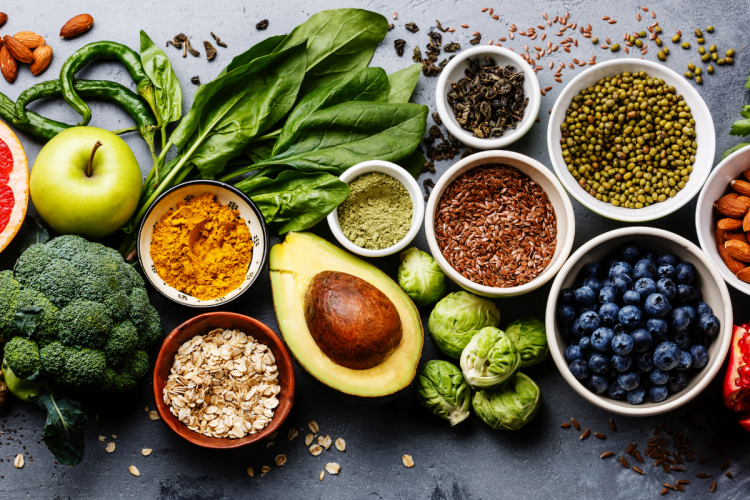
Why ‘Eating Meat’ Is Not The Problem
Here’s the real truth. Eating meat – the sole act of eating meat without any context for quality and quantity – isn’t the problem. The environmental problem with our collective meat consumption is how much of it we eat and how we manufacture it.
The manufacturing issues directly correlate to the volume of meat that we eat. Because there is such a high demand for meat, most meat is produced on factory farms (called CAFOs or Concentrated Animal Feeding Operations). These farms have really high concentrations of animals in small spaces.
Cows, for example, are confined to such tight quarters in some feedlots that they destroy the soil on which they live. They can’t graze naturally, so farmers purchase massive amounts of feedstock grown on monoculture farms with heavy fertilizer, pesticide, and herbicide usage. Then the finished products are shipped around the globe, leaving a trail of carbon emissions in their wake.
Alternatively, if we ate less meat, we wouldn’t need to produce it in such high volumes. Many more people could purchase meat grown on local, regenerative farms. Regenerative farming practices incorporate animals with other crops and systematically maintain or improve the health and biodiversity of the soil and the ecosystem. Regenerative farming for meat-based and plant-based diets in moderation can actually be a climate solution, not a climate disaster.
Meat is not our problem. Factory-farmed meat produced on commercial feedlots with little regard for environmental consequences is our problem.
But Isn’t Meat From Local and Regenerative Farms More Expensive?
Yes and no. Producing meat on a regenerative farm isn’t necessarily more expensive. There are regenerative farms in the United States making more money now than they did when using traditional agriculture practices. Logically, producing and shipping meat around the world through complex supply chains with bloated corporate overhead structures shouldn’t be more expensive than getting meat from a local farmer in your region.
Factory-farmed meat is less expensive, in part, due to the massive government subsidies and financial benefits that large corporations receive for commodity crops that are not available to small, sustainable, and regenerative farmers. In other words, part of the price discrepancy that you see at the grocery store is a result of government subsidies and funds given to large, commercial producers that end up passed along to customers as lower pricing. Most small, sustainable and regenerative farmers can’t access these subsidies, so customers see higher relative prices. If smaller farmers could access these benefits, their prices would be more comparable to the alternatives from large and multi-national Big Agriculture companies.
Furthermore, many people write off the idea of buying meat from more sustainable and regenerative farms because it’s too expensive. But is it really too expensive, or are too many of us just not willing to pay a price for meat that would incorporate the cost of externalities not currently factored into artificially low prices from Big Agriculture?
I challenge those who eat a lot of meat and claim they can’t afford it to reconsider. Relative to other types of food, meat is expensive. Families on particularly tight food budgets are not buying up all the meat. They’re not generally responsible for excessive consumption. “Pay up for better meat” isn’t a message for them.
However, if you are buying and eating a lot of meat, buy less but better. Buy Local. Buy Regenerative. And eat something else between meals of ribeye and tenderloin.
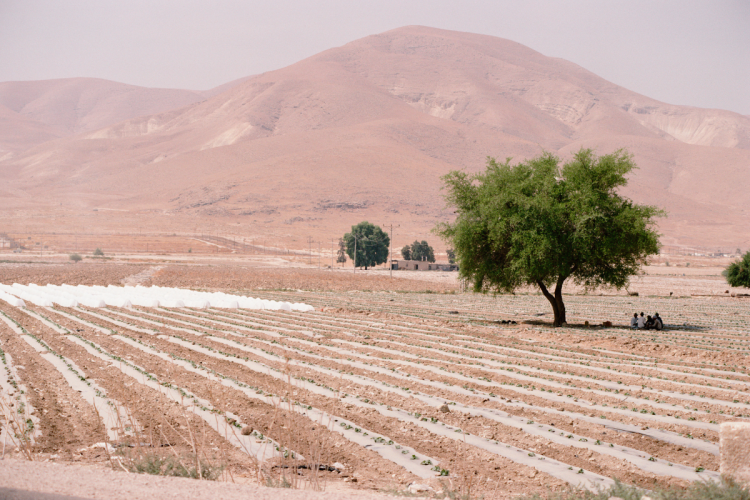
Vegan Agriculture Isn’t Automatically Better
The harmful impacts from Big Agriculture aren’t limited to methane from cow burps and greenhouse gas emissions from the production of animal feed on CAFOs. Soy, corn, and other similar commodity crops that are staples in vegan diets destroy and deplete the soil when grown in industrial manners with excessive amounts of fertilizers, herbicides, pesticides, and GMO seeds that diminish biodiversity.
Fertilizers, herbicides, and pesticides aren’t diabolically bad depending on how and how much we use them. The jury is still out on the full impacts of GMO seeds; it’s too early to really know what the long-term impacts of genetic modification will be.
If we intend, however, to produce commodity crops in the same destructive but commercially lucrative ways we’ve done for the last several decades to make tofu and vegan cheese and fake meat for eight billion people, we’re not doing the planet or our communities any favors.
Healthy soil retains water to reduce the impact of droughts, sequesters carbon to reduce atmospheric warming, and reduces soil erosion. Topsoil is eroding faster than it’s being restored, due in part to profit-driven management solutions that prioritize short-term production over soil health longevity. These vegan staples aren’t good for the planet when they destroy soil and all the animals, microorganisms, and biodiversity that flourish in thriving soil.
It’s not even worth comparing which environmental atrocity is worse. Greenhouses gases don’t much matter when the soil is dead and depleted and can’t grow crops to feed us. Soil health doesn’t much matter when the climate is so out of whack from greenhouse gas emissions that the climate can’t support consistent crop growth.
To be sure, animal agriculture can harm soil, and there are massive greenhouse gas emissions associated with producing and transporting vegan staple commodity crops around the globe. I’m not suggesting the analysis is as simple as comparing greenhouse gas emissions from CAFOs and soil destruction from commodity crops for vegan foods (not even close).
However, these are two examples of major environmental matters that represent the largely nuanced analysis of how our food shopping and dietary choices impact our climate action footprint. It’s way more complicated than “Go Vegan For Mother Earth.”
Neither Carnivore Nor Vegan Diet Is Inherently Healthier
I’m not a nutrition expert, but I know enough about food and nutrition to know that neither a meat-based nor a plant-based diet is resoundingly healthier. It all depends on what you choose within those dietary restrictions.
Meat-based diets can pose health risks like heart disease. They can lead to massive overconsumption. There’s a plethora of research on nutrition that’s out of the scope of this post, but the facts are clear. Incorporating some meat-based protein into a balanced and wholesome diet with discretion can very well be a beacon of health.
Alternatively, a vegan diet loaded with whole fruits and vegetables is fantastic. But Oreos are vegan! Many vegan foods are ultra-processed, which often leads to high amounts of salt, sugar, and fat being added back into the “food” products to make them palatable.
Doesn’t the fact that fake meat requires a patent because it’s so ultra-processed (the patent is effectively protecting the proprietary nature of that ultra-processing) give anyone a second thought about whether or not it’s good for our bodies? I’m not saying it’s good or bad, but why aren’t more people questioning it?
To be sure, ultra-processed foods aren’t limited to vegan diets. They’re a staple in our supermarkets in just about every aisle and end cap. But just because something is vegan doesn’t mean it’s healthy.
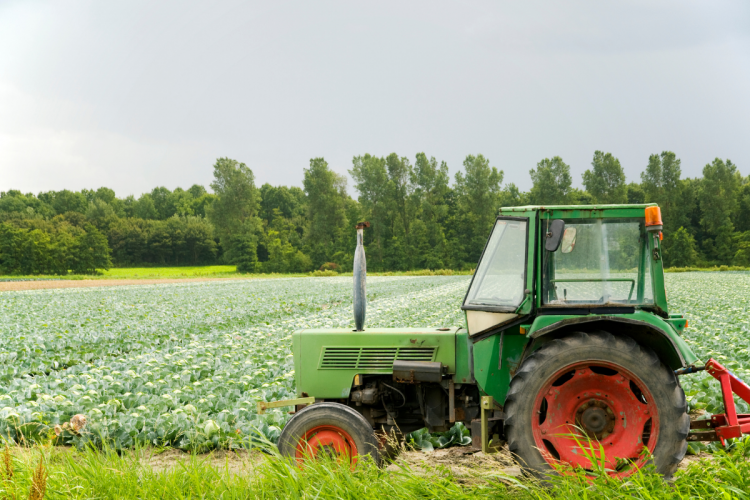
Regenerative Farming Is Actually Good For The Planet
Regenerative farming and agriculture advocates should be sending the message that meat can be part of our diets but not be the main staple in every meal. We need animals included in a circular agriculture system. Animals play a significant and useful role in soil replenishment and management after plant crops absorb nutrients from the soil during their growing season. Just like in any ecosystem on the planet, plants and animals work together to maintain a healthy and vibrant environment.
However, we probably can’t produce enough meat on regenerative farms to meet current demand levels (which are likely to grow as global populations are lifted out of poverty and eat increasingly more meat on a middle-class income). The message shouldn’t be “stop eating meat” because that’s going to fall on deaf ears and is far too simplistic. The message should be “eat less meat” so we can produce it in a way that’s beneficial to the planet and our health.
Hundreds of years ago, millions of ruminants roamed the land of the United States. They still ate grass and farted like our grandpas but the methane from their farts and burps wasn’t heating up our planet at breakneck speeds. That should show us that the presence of that many ruminants isn’t the problem. The problem is how we raise them (on factory farms over destroyed and depleted soil, sometimes at the expense of cutting down important forests to create grazing space).
Stop believing that we live in a world where cows are enemies of the planet and meat is an environmental sin. It’s so much more complicated than that.
Eat Less Meat For The Sake Of Your Children And Grandchildren, Nieces and Nephews
Chances are you care about the future of at least one child in your life. If you’ve saved money in a college savings plan for a child, dedicated your time or money to sending a child to a “good school”, helped a child “build a good college resume” through better grades and extra-curricular activities, or done pretty much anything to “set a child up for success”, you care about the future of a child.
I’m not suggesting any of the aforementioned endeavors is right or wrong or anything in between. I’m only suggesting that they are all actions taken with the intent of providing a good future that benefits your children or the children in your proverbial village. Why not invest in a child’s future financially and through your everyday actions?
Eating excessive amounts of meat contributes to climate change because it feeds a system producing at an unsustainable rate. It perpetuates destruction to a future planet that will most likely be far less enjoyable for the child whose future well-being you seek to protect.
There are few guarantees in life, but if you care enough to save for college, help your child pursue a strong “college resume”, or invest yourself in a multitude of other life-defining habits for the sake of a child’s future, why not eat a bit less meat for your kids’ future as well?
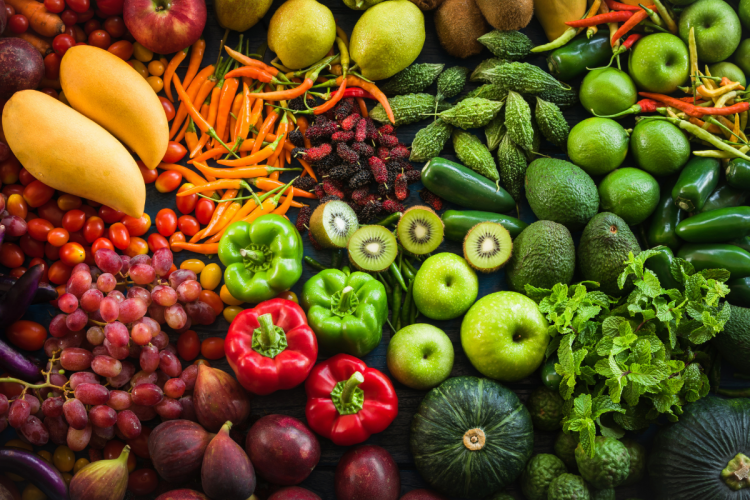
Vegans Be Vegans; Not Missionaries
If you want to be vegan, then you do you. If you don’t eat any meat for the sake of the animals, go for it. I have no issue with one choosing not to eat meat. There are plenty of foods I chose not to eat for a variety of reasons.
I challenge you, however, to consider all animals and living organisms in your food analysis. Be mindful to avoid eating food made from monoculture farms with depleted soil and non-existent biodiversity. Monoculture crops are built on the destruction of habitats and death of smaller animals, insects, and organisms dependent on a biodiverse ecosystem with healthy soil.
If vegans are going to raise their voices as the almighty culinary environmentalists, be sure to take a holistic approach to your mission.
And please don’t suggest that someone must be vegan to be an environmental advocate or that vegans live on some eco-pedestal. That’s no different than saying a vegan isn’t an environmentalist unless they drive an electric car or always ride a bike, only if they compost, and only if they live in a tiny house with a zero carbon footprint. No one is a perfectly “eco” person, especially not in our current culture. We all choose different avenues to practice environmentally-“good” habits that work for us and our families.
The environmental impacts of our food and how that fits into an eco-conscious lifestyle are far more nuanced than the food we have in our fridge and our cabinet or the meals we order at restaurants. Furthermore, an “all or nothing” message that we all have to be vegan is so extreme relative to the current status quo that it will likely be lost on most. In fact, it probably will encourage many meat-eaters to dig in their heels and ignore ideas to make marginal changes in their diets for the better.
So What’s The Solution?
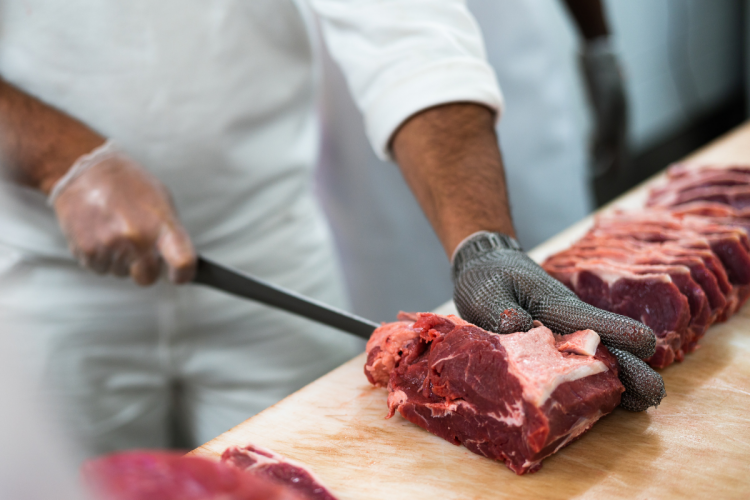
Modify Meat Consumption Habits
In short, you don’t have to become vegan to save the planet. Many vegan foods are produced in ways that are pretty terrible for the planet. And as synthetic meat companies have grown, they’ve had to rely increasingly on commercially-produced monoculture crops that are crappy for the planet too.
However, it behooves us to eat less meat so we can collectively rely more on regenerative farms and limit reliance on CAFOs and monoculture farms. Our actions matter. So where to start?
Eat Less Meat
Incorporate meat into your meals but as a smaller portion of the meals. Instead of eating a whole chicken breast as one meal, maybe add chicken to pasta or a salad or a quesadilla so a single chicken breast stretches over one or two meals for your whole family.
Try tacos instead of burgers so one pound of meat can be shared among more people. Save steaks for fancy dinner or special occasions.
Eat Different Cuts of Meat
Mix up the cuts of meat that you eat. If we only eat the fanciest cuts of meat from a cow, that’s a lot of wasted parts that effectively require more cattle, ranching, and processing to satiate our meat appetites. Instead of grilling a steak, try using a “lower quality” cut in a slow cooker or choosing ground beef more frequently.
Eat Different Types of Meat
The science is pretty clear that beef has a much larger carbon footprint and environmental impact than pork or poultry. Cattle can be a really useful element of a regenerative agriculture circular system, but we don’t need so many cattle that everyone is eating red meat every day. Swap out steak for chicken or pork more often than you have in the past. Consider sustainably-raised fish to fill your protein fix.
Eat “Better” Meat
Choose meat raised in more sustainable conditions like grass-fed and grass-finished or on regenerative farms. It’s not always easy to know this information, but if you can find it, choose better. Even if it’s more expensive, you likely won’t spend more overall on food if you’re also swapping some meat meals for less expensive protein alternatives.
Eat Some Meatless Meals
Try new-to-you protein-rich foods. Lentils, chickpeas, beans, and nuts are popular options that fill bellies without meat. There are tons of vegan and vegetarian recipes and cookbooks that offer flavorful meals without the meat. If you have a friend who eats a vegetarian or vegan diet, ask them for a few of their favorite recipes. Maybe they’ll even cook for you on occasion.
Eat Meat From Local Farms
Find a local farm in your area or your region and purchase some (or all) of your meat from them. If you’re buying locally and direct from the farm, there’s a good chance the animals are not raised in the CAFO structures that cause so much environmental damage (not to mention animal welfare concerns).
Your local farmer probably has a website, a Facebook page, or an Instagram account. Check out what they’re up to. I bet they’re pretty passionate about their animals and care for them with love and compassion. Maybe you can even stop by and say hello.
Eat As Much Wild Game As You Want (within legal restrictions, of course)
If you want to make the argument that we can hunt for food so we can all the meat, then, by all means, eat whatever you kill (so long as you have a permit or license to hunt it). No one is destroying the planet because they eat absurd amounts of meat they hunted with their own hands and skills.
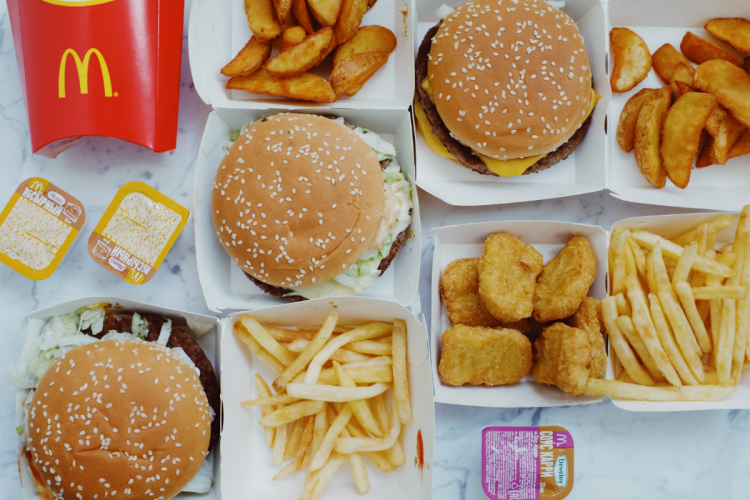
Pressure Multinational Companies To Purchase From Sustainable and Regenerative Farms
Multinational food companies like McDonald’s and grocers like Walmart are major players in the global meat market. These companies have the funding, horsepower, and influence to move markets and shift global supply chains. If you really want to have an impact on changing how global meat producers raise and transport meat, talk to McDonald’s, Walmart, and their enormous corporate counterparts.
It takes years to reimagine and rebuild global supply chains, so advocating and seeing through shifts in consumption from purchasers who can really move the needle takes patience and tenacity. But these are the real cogs in the wheel of Big Agriculture that drive decision-making and spark change. When large multinational consumer food companies ask equipment makers, food producers, and processors like John Deere, Archer Daniels Midland, Tyson Foods, Cargill, and more to make changes, they respond.
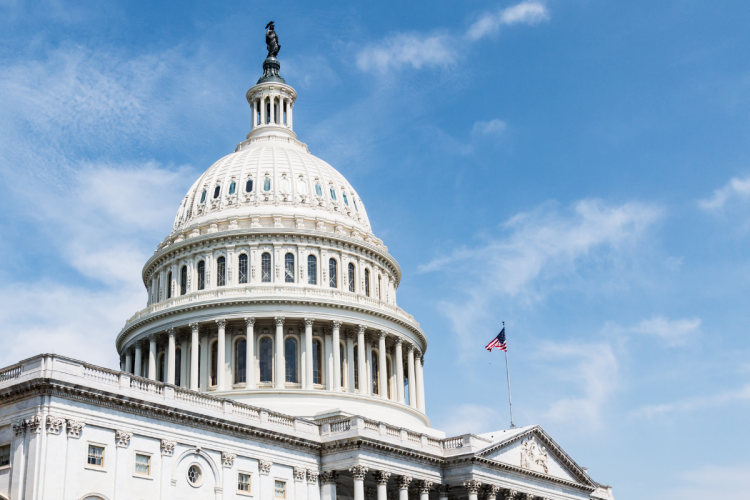
Advocate For Revising Legislation
Legislation like the United States Farm Bill doles out insane amounts of money to agricultural companies with a heavy preference for commodity crops from large corporations that (surprise!) lobby government leaders for the money.
Many small farmers, regenerative farmers, and farmers who produce food like fruits and vegetables receive far less funding, subsidies, and crop insurance than those who produce commodity crops like soy and corn. Our diets are laden with derivatives of soy and corn-based products precisely because these are the crops the United States government pays farmers to grow (be it through direct payments, tax benefits, and insurance payments and promises).
Generally, farmers don’t make a lot of money. I don’t fault them at all for choosing to grow crops that provide reliable, steady income to support their families. We need to encourage the government to use funds and benefits like those paid out via the Farm Bill to support more regenerative farmers and varied, healthy crops, and to provide educational and financially-secure programs for farmers to transition away from commodity crops and to more regenerative farming methods.
To All The “I Already Don’t Eat Much Meat”ers
If you already don’t eat much meat because you don’t love it, can’t afford it, think raw meat is gross to touch, or just don’t add it to your weekly meal for whatever reason, this message is not for you. Adding some chunks of chicken to your salad, biting into a juicy burger once a month, or having a filet once every six months isn’t the problem.
To The Rabid Carnivores: This Is For You
This message is for those of us eating a slab of steak three times a week or burgers daily. Yes. Meat has been part of the human diet for millennia. But cavemen didn’t hunt and gobble a turkey and a cow every week. If you couldn’t successfully hunt and gather all the meat you eat, then the argument that “humans have been doing it forever” or “it’s a significant part of cultural history” isn’t going to cut it.
Indigenous communities may slaughter and share an animal at a ceremonial event, but no one considers a daily Big Mac and fries part of important cultural traditions existing long before human-induced climate change. Inhaling a quarter pounder at a fast food joint is not the same as roasting a whole pig for a social and community event to share with many.
The Nuances Run Deep; The Challenges Are Complex
I’ve only begun to scratch the surface of the mess that is Big Agriculture as it relates to our planet and our health. When made with commodity crops, vegan diets are ultra-processed junk. When raised in inhumane CAFOs and eaten gluttonously, meat products are atrocious for the environment and our health. When produced in regenerative agriculture environments that respect planetary well-being and long-term soil health, they’re both pretty good options.
Lastly, please stop suggesting we all have to be vegans to save the planet. That’s junk (just like Oreos).
You Might Also Like
Why Veganism Isn’t THE Solution To Climate Change
What is Regenerative Living for Modern Families?
10 Principles Of A Climate Resilience Garden

Jen Panaro
Jen Panaro, founder and editor-in-chief of Honestly Modern, is a self-proclaimed composting nerd and advocate for sustainable living for modern families. To find her latest work, subscribe to her newsletter, Stepping Stones.
In her spare time, she’s a serial library book borrower, a messy gardener, and a mom of two boys who spends a lot of time in hockey rinks and on baseball fields.
You can find more of her work at Raising Global Kidizens, an online space to help parents and caregivers raise the next generation of responsible global citizens.

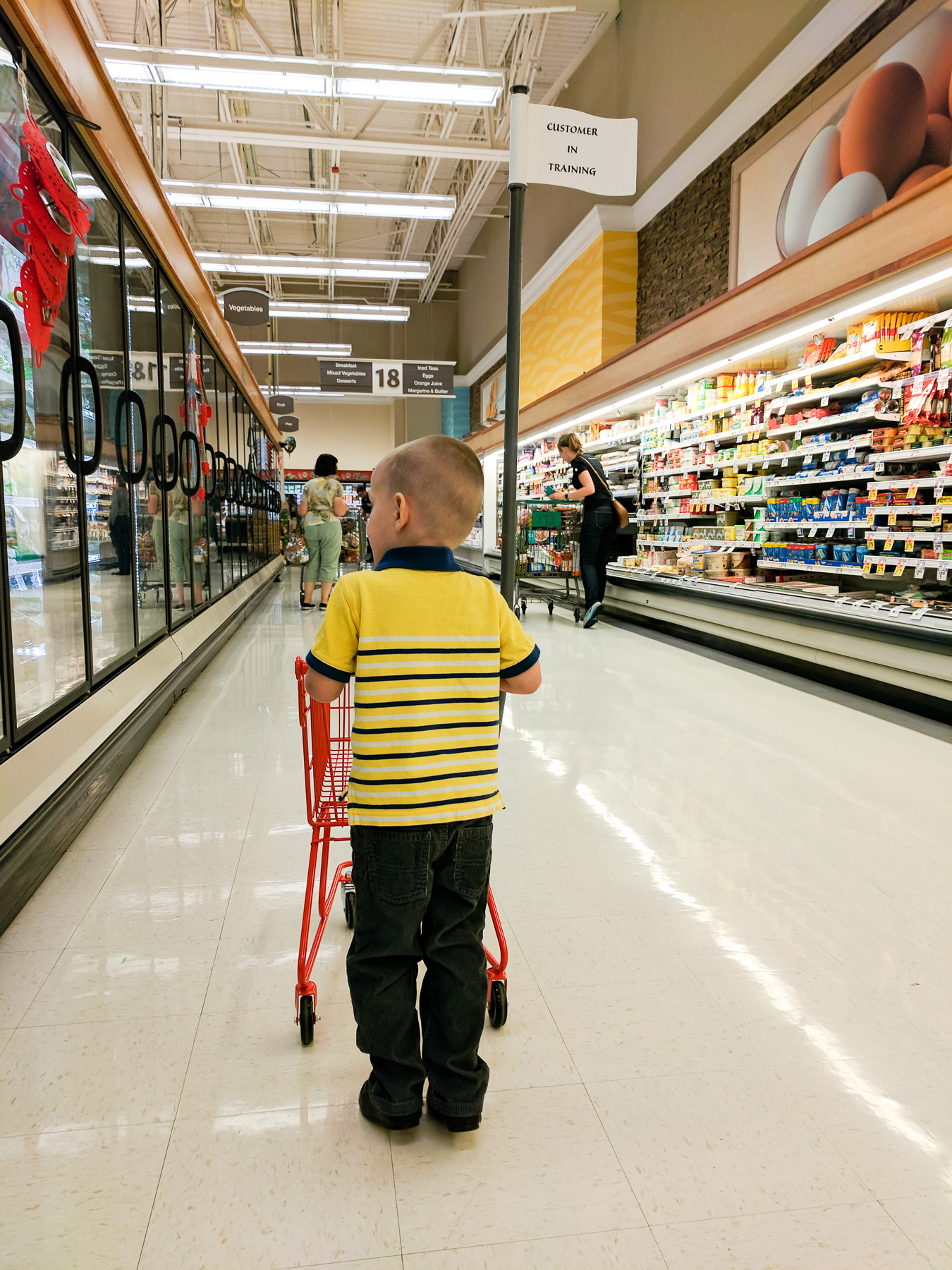
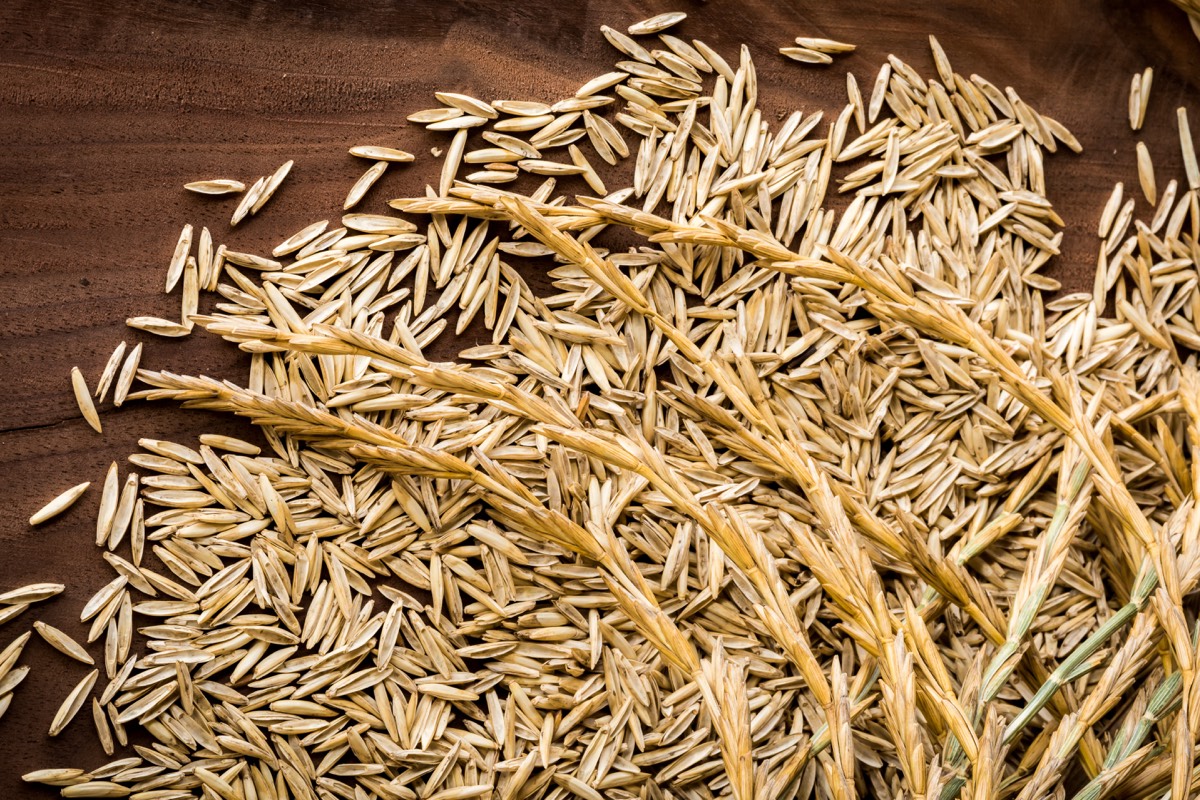
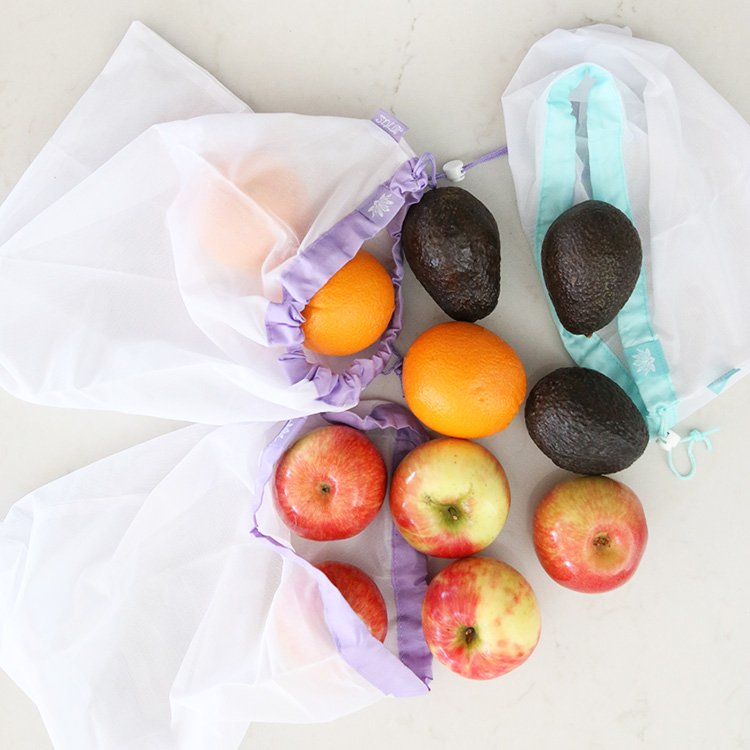
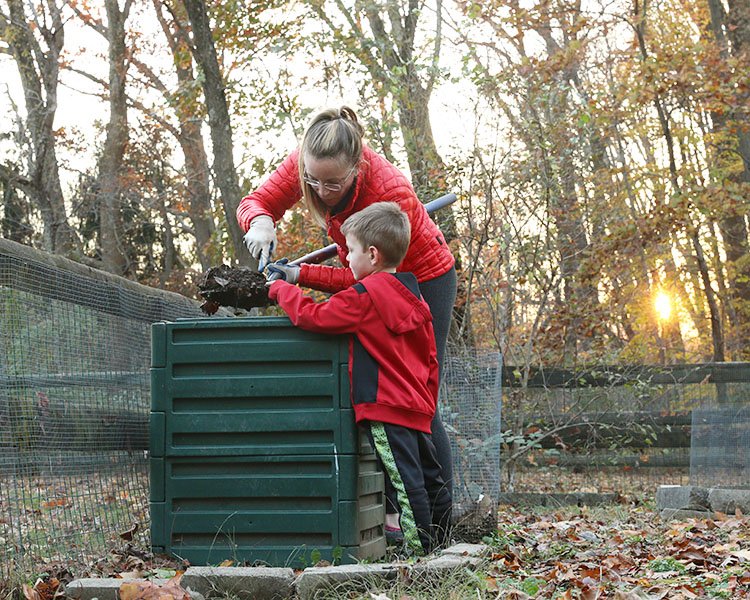
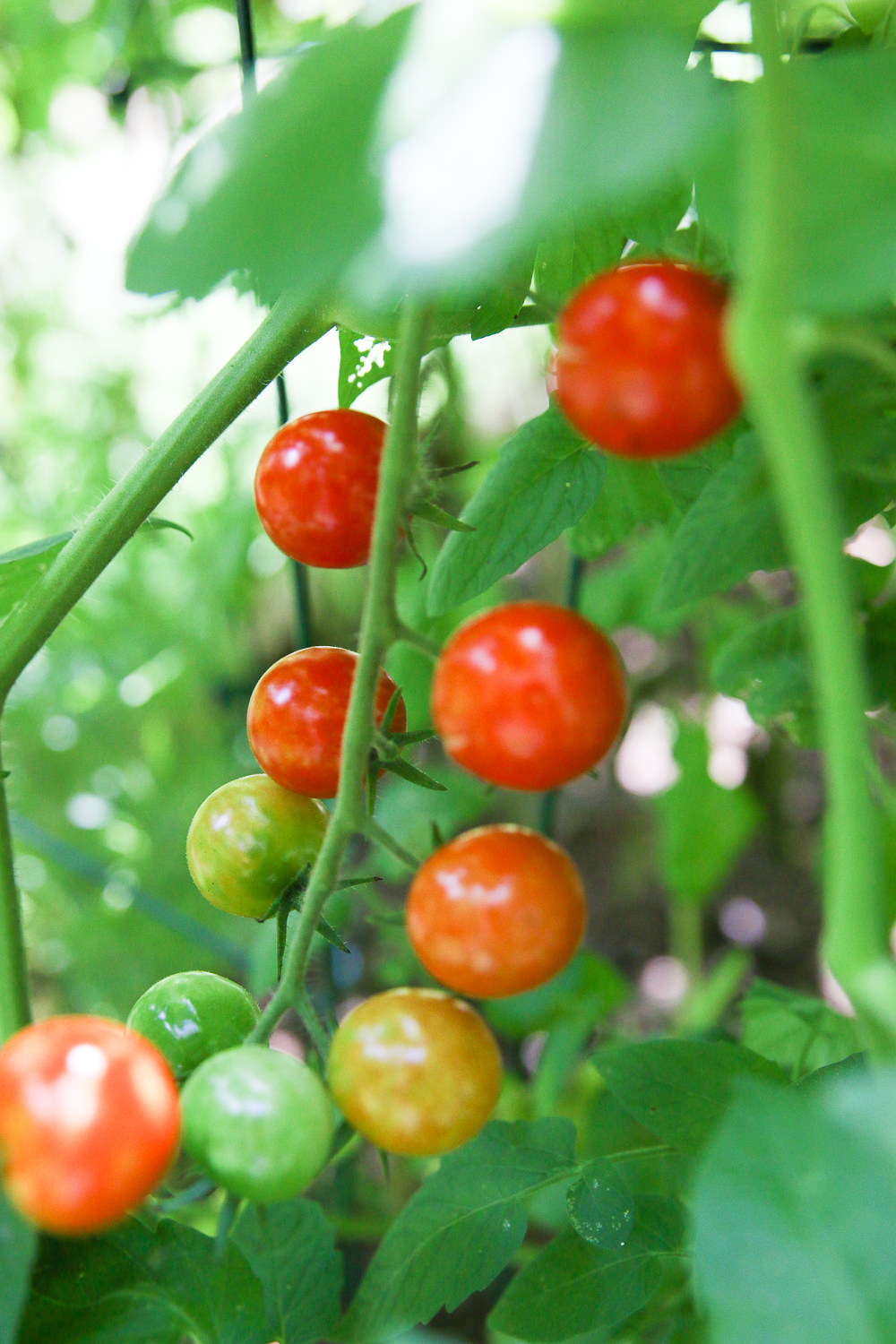
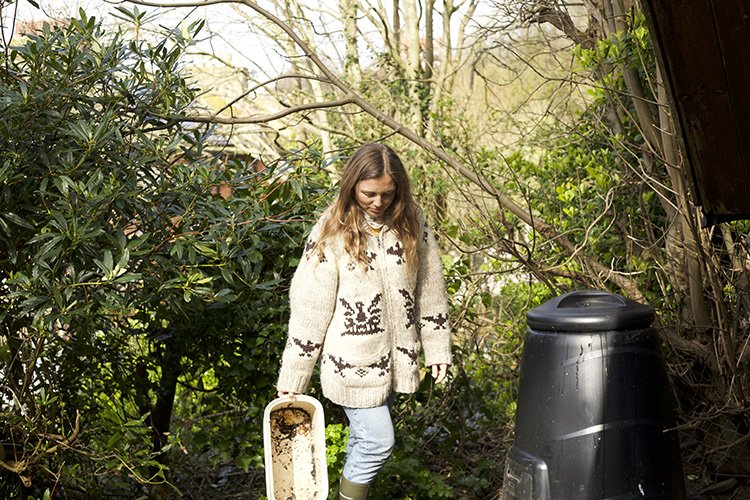

Couldn’t agree more!
Thank you. Glad this resonated with you.
Great article!!! All these have been in my mind for some time already, only I could not express myself half as good as you do. Kudos!
Thank you!
Wonderful article. Thank you for articulating this complex topic so beautifully.
Thank you!
Full disclosure, I am vegan, descended from multiple generations of vegetarians. I applaud your concern for the harms caused by CAFOs and your advocation of meat reduction in our diets. Reading your opinion piece, I was provoked to respond to some issues which it raised.
Ironically, there were two crops you “called out”, soy and corn. Both 40% of domestic corn and 77% of all global soy (per USDA and Oxford), are produced as feed for farmed animals. Tofu accounts for only 2.6% of soy grown. The majority of the world’s mono-crops are fed to livestock. Besides, the vast majority of plant-based foods grown for human consumption are eaten by people who also eat meat. Vegans represent a very small fraction of the total human consumption of plant-based foods. The tired trope that vegans bear full responsibility for any agricultural practices, soy or corn or whatever crop, is patently absurd. Of course we should always be striving for best practices as much as possible when growing crops for any purpose, as with any human endeavor.
I don’t know of any vegan who would ever claim that all foods that qualify as being vegan are healthy, including “fake meat” products. Most are aware of potential pitfalls and know to exercise care, the same care as one should take when eating any type of diet. There are required nutrients that are more prevalent in meat as opposed to plants, but there are easy solutions. Plant-based diets have none of the inherent higher risks for disease like those associated with eating meat e.g. heart disease, diabetes, cancer (esp. colorectal and breast), stroke, pneumonia, cardio-vasculary disease, etc.
Holistic Grazing, the highly touted “grass fed” regenerative recommended practice for raising livestock, requires much more grazing acreage due to grazing rotation requirements, thus retaining some of the issues we need to fix. (deforestation for agriculture, reforestation for carbon sequestration, etc) Livestock accounts for 80% of total agriculture acreage and fully 26% of ice-free land on earth is used for grazing (U.N./FAO).
According to the “Drawdown Report” eating plant-based to draw down carbon is 2 times as effective compared with silvopasture and 4 times compared to managed grazing, two other forms of regenerative livestock agriculture.
There are many types of regenerative agriculture that do not require animals or animal manure. While manure can support fertile soil, when applied in the right amount at the right time of year, livestock agriculture produces far too much of this antibiotic-contaminated product. Our attempts at dealing with this surplus has often resulted in the contamination of waterways, rendering them dangerous for marine life, other wildlife and humans. Plant-based “green manure” is one option already in use.
While livestock burps are not THE problem, they definitely contribute to the overall problem of anthropogenic emissions of green house gasses. Of course ruminants’ burps account for only a portion of the total emissions produced due to livestock production, which makes the point of your comparison highly inaccurate. Animal agriculture is responsible for 80% of food-related emissions while accounting for only 18% of our total calories. But after all, even all of the emissions account for just one of the many ways in which livestock agriculture presents existential harm compared with wild herds roaming freely in the distant past.
Veganism truly is the Holy Grail as it is eliminates 100% of the existential threats uniquely presented by animal agriculture while greatly reducing harms posed by both crop and animal agriculture. And while we may not be able to totally eliminate animal exploitation we can reduce it significantly while eliminating their unnecessary slaughter.
Reducing meat consumption, which is the opposite of what is predicted, while preferable to the status quo, is simply an “also ran”.
Thanks for sharing your thoughts Daniel. I don’t disagree with many of your points. I agree that we should be eating much less beef and meat products (including fish) than we do now, particularly to the extent it requires society to rely on CAFOs and similar types of highly industrialized agriculture. But I also don’t think that means animals can’t be part of an environmentally-responsible diet. We should eat less meat, and it’s ok to eat some meat while still being a “good environmentalist” can both be true.
I also agree that trends indicate more meat consumption in the future (which is not great). But to say that our agriculture systems are best without animals and we should all be vegans misses a lot of nuance about soil health, water quality, petro-based fertilizers, and more.
It’s all too complicated to be solved or defined in a few blog post comments, but that’s part of my point. There is no Holy Grail. There is no single solution that’s the silver bullet to fixing climate. And there’s no particular lifestyle habit that will work for everyone and will be the solution that fixes all the climate ails.
Let me try this. After reading the several sentences of my initial comment where I rebut your argument, can you agree that your effort to pin the problems of corn and soy agriculture on a vegan diet, was misguided? Did you understand where I pointed out the fallacy of using the commonly employed myth of comparing currently farmed livestock to historical ruminants?
I am not, by any means, pinning the problems of soy and corn on vegan diets. I entirely agree a huge portion of the crops are currently used for animal-feed (which would not be such an issue if we ate a lot less meat, such that the quantities could be reasonably grazed on pasture without needing more deforestation, etc…). However, if everyone was vegan, we would likely need a lot more soy and corn for the variety of processed vegan products made with those ingredients. That’s all I’m suggesting. That widespread veganism would require more of the crops that also cause problems on their own. No solution is perfect, and I think it’s important to acknowledge and appreciate the nuances.
The kind of individuals who switch to a vegan diet out of the very real concerns for the climate, ecology, clean water resource consumption, the need to feed those starving, human health and the ethical treatment of animals, are those same who will demand best practices for raising soy and corn or any other crop. Where is your data from studies that show that switching the existing production of those crops from animal feed to meet any scientifically hypothesized increase in demand for human consumption will result in a net increase in acreage anyway? If one really must eat “processed” vegan foods, which many meat eaters that I know already do anyway, there are a wide variety of sources besides corn and soy that one can use. I’m concerned about the lack of citation of scientific research in your opinion piece.
Thank you for sharing your engaged feedback.
Existing cropland could feed four billion more by dropping biofuels and animal feed
https://www.sciencedaily.com/releases/2013/08/130801125704.htm#:~:text=Existing%20cropland%20could%20feed%20four%20billion%20more%20by%20dropping%20biofuels%20and%20animal%20feed,-Date%3A%20August%201&text=Summary%3A,consumption%2C%20according%20to%20new%20research.
Thank you Daniel!!! Well said and great work touching on all these important points to truthfully explain the facts on eating a plant based diet, and living a vegan lifestyle! No diet is perfect but at the end of the day, plant based has proven over and over to be the better choice for our planet, the animals and our own health! ♥️♥️
one problem with a vegan diet is that you, the individual is lacking something! You cannot get all your nutrients needed for normal human functioning from a plant. Meat is essential or supplemental vitamins.
Thanks, Sorry about my run-on comment. When I composed it, I divided it neatly into cogent paragraphs. When it posted, it somehow reformatted.
Issues you raise of soil health, water quality, petro-based fertilizers and more can all be dealt with, without the exploitation of animals.
I don’t know of anyone who claims that going vegan fixes all climate ails, it is simply easily doable and is very impactful.
On what basis may you disagree that we should extend moral consideration to the life, health and welfare of sentient beings with whom we share the planet?
No worries about the formatting. WordPress is finicky sometimes. I do not disagree that sentient beings beyond humans deserve moral consideration for life, health, and welfare.
Yes! Thank you for speaking up for the animals being needlessly slaughtered! Frankly after everything we do know about any diet, it is simply morally wrong to exploit, harm, and murder these animals knowing we do not need to. Unfortunately, no diet comes without some kind of harm to others, but we have to do better! You can’t compare crop deaths to slitting someone’s throat, gassing or suffocating them 🙁 Missionary for the animals til the day I die!
But, we’re not feeding 8 billion people, are we? We in the rich countries are feeding ourselves in the rich countries and a not inconsiderable number of humans starve to death each year. If profitability is used as a weather vane, half the world would remain becalmed in the fog and conveniently out of sight. Until every last man, woman and child on Earth has enough to eat, any phrase that includes ‘sustainability’ is a load of horse’s doovers.